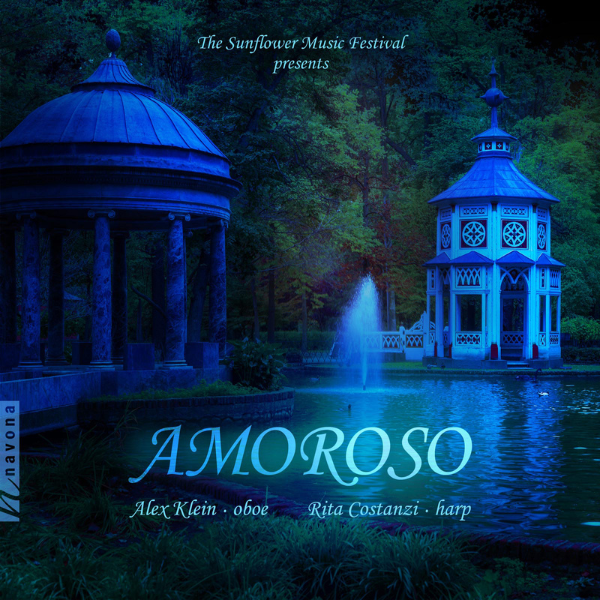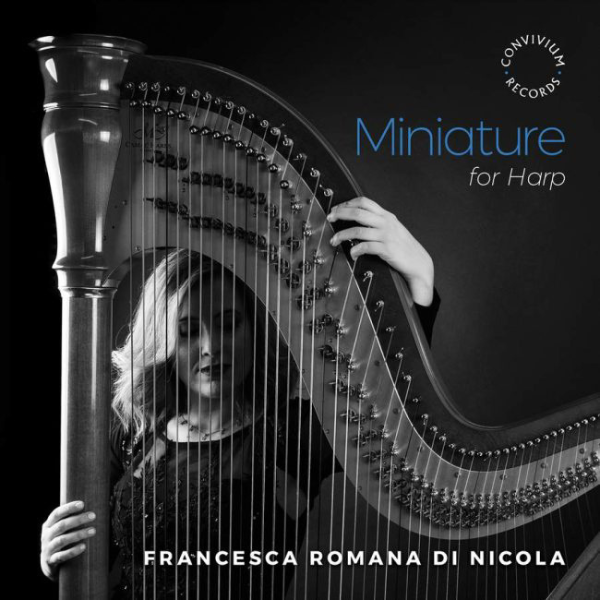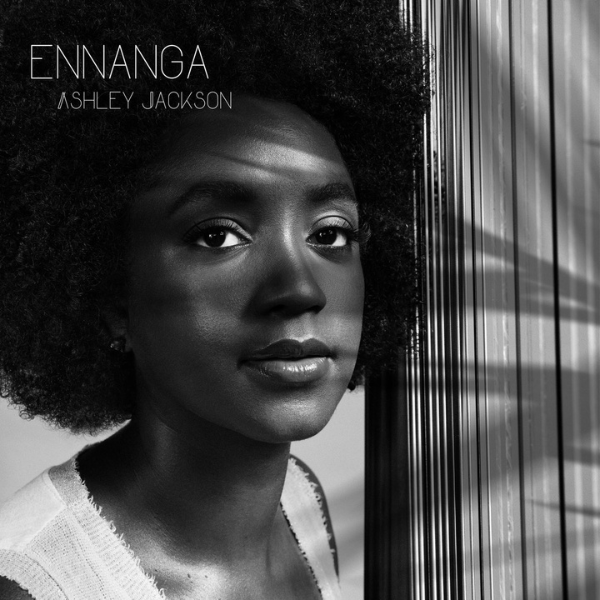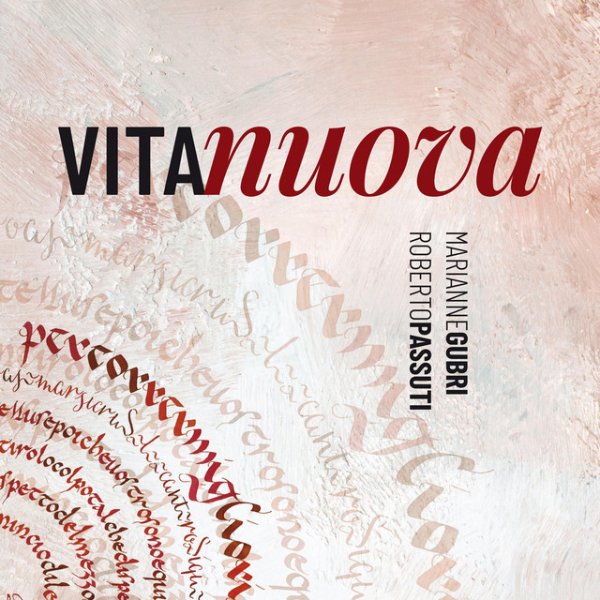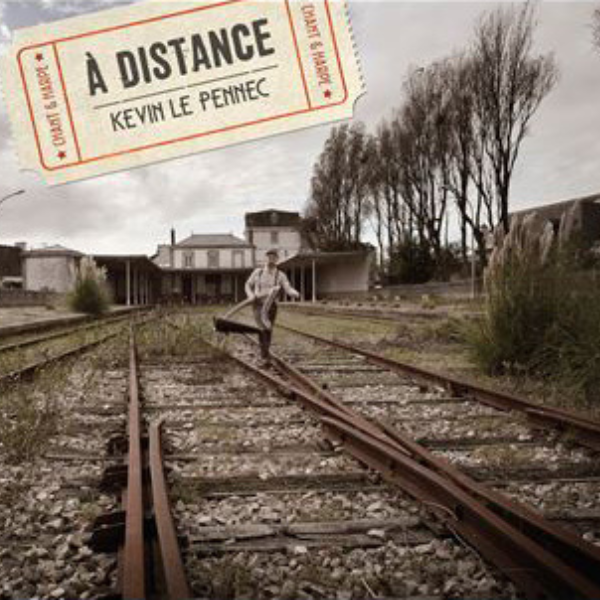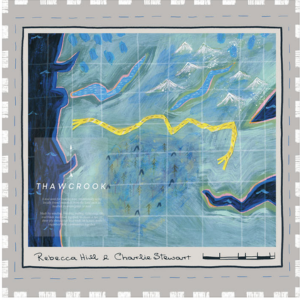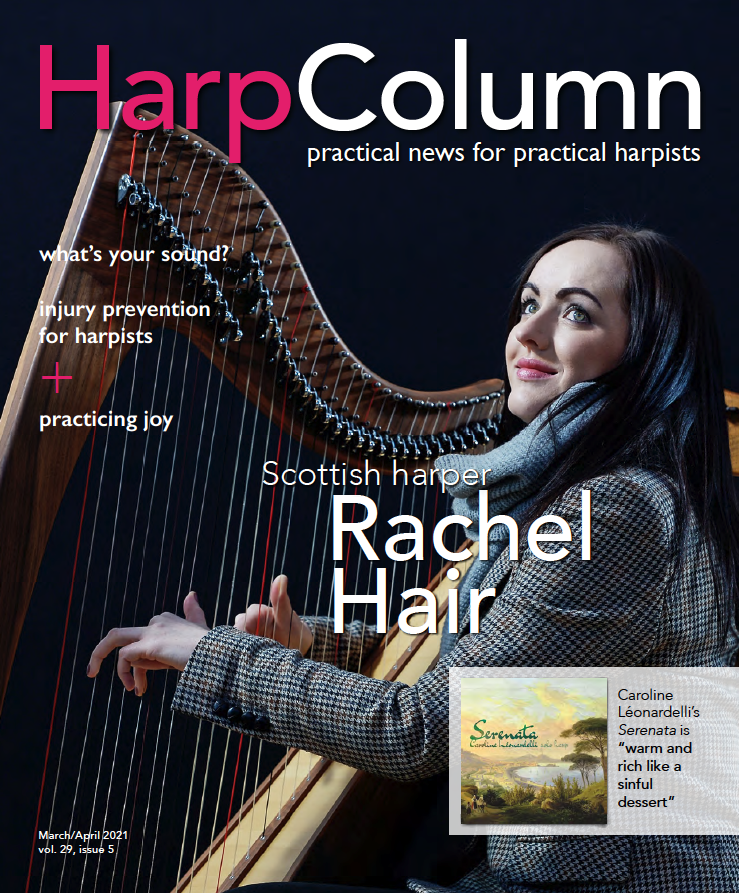
9/10
Kyunghee Kim-Sutre, harp, and Guillaume Sutre, violin. Sonarti, 2019.
The year 2020 marked the centennial of women’s suffrage in the United States. We finally elected a woman to high office in Kamala Harris, and as I sit down to write this review, a calendar reminder flashes on my screen telling me that later today there will be a birthday celebration concert—via Zoom, of course—to celebrate one of our musical “sheroes,” Libby Larsen.
So it’s fitting to read this question posed at the outset of Kyunghee Kim-Sutre’s exquisite new CD dedicated to the remarkable Sophia Dussek, “Will the 21st century turn out to be the century of women composers?” Dussek was not a product of our time, but rather of a time when women’s creative ability and output were considered inferior to that of men, and, even if a talented few were granted access to revered conservatories, those that rose to the top received labels such as “wife,” “sister” or “muse” of a more established male composer.
Such was the case for the exceedingly talented and resourceful Sophia Corri Dussek, a composer, performer, and entrepreneur who allowed her famous husband to sign his name to her compositions so she could be published in the 18th century when it was the norm for married women to retreat from public life.
Domestic life was plainly not all it was cracked up to be when both her husbands faced bankruptcy and ruin. Perhaps we can hold her up as a role model for independence and bouncing forward, since she persisted and endured, capturing the ear of the impresario Charles Burney, performing with Haydn, and introducing the music of Mozart to London audiences.
Kim-Sutre spent five years researching and reconstructing the music of Sophia Corri Dussek. She focused on this era of creative activity when Dussek sought to meet the high demand for arrangements played in the drawing rooms of the growing middle and upper classes.
Cleverly adapted traditional songs from the British Isles were all the rage. Kim-Sutre presents three sets of variations on Favorite Airs, her playing always lithe and graceful even as the technical challenges mount. Her elegant style captures perfectly the character of playing for friends in one’s home, where the intent was to entertain not impress. Violinist and life-partner Guillaume Sutre adds an extra shimmer to one set, accentuating the prevailing style of the time of the violin acting as accompaniment, spicing up the line with color.
The waltz was only recently introduced to England and are popular there. Kim-Sutre leads the listener in a frothy whirlwind of one-to-a-bar New German and New Tyrolean waltzes, subtly pulling the tempo back in an organic manner as if breathing the music. Melodies of the continent were also of special interest, and it’s in the simple Favorite French Air that Kim-Sutre especially sparkles.





